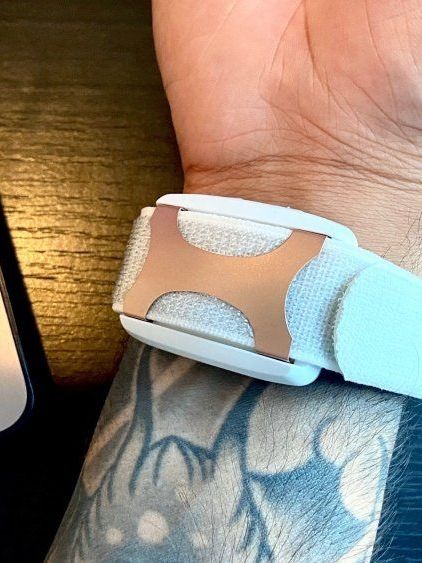The Silent Saboteur: Understanding Stress's Grip on Your Physical Health
Expert Cited: Dr. Gabor Maté
As fitness enthusiasts, we dedicate significant time and effort to honing our physical bodies. We track macros, optimize workouts, and prioritize recovery. But what about our mental well-being?
Chronic stress and anxiety can silently undermine our fitness goals and overall health, making it crucial to address these mental hurdles with the same tenacity we apply to our physical training.
The intersection of physical and mental health and their impact on each other is something Dr. Gabor Maté explores in depth and has studied for a large part of his career studying stress, trauma, and addiction.
Expert: Dr. Gabor Maté
Field of Study: Trauma's connection to health
Bio: Dr. Gabor Maté is a best selling author, public speaker, and expert on addition, stress, and childhood development.
Primary Source: https://drgabormate.com/
We're going to break down a few core concepts of his that could have a positive impact on your mental health which may significantly influence your physical health as well.
The Mind-Body Connection
Stress isn't just a feeling; it's a physiological response that triggers a cascade of hormonal and biochemical changes in the body.
When we encounter a perceived threat, our bodies release stress hormones like cortisol and adrenaline. These hormones prepare us for "fight or flight" by increasing heart rate, blood pressure, and energy levels.
While this stress response is beneficial in short bursts, chronic stress keeps these systems on high alert.
Over time, this constant state of arousal can wreak havoc on our bodies, increasing the risk of various physical ailments.
How Stress Fuels Disease
The pathways through which stress can lead to disease are numerous and complex:
Weakened Immune System: Chronic stress suppresses immune function, making us more susceptible to infections and illnesses. Cortisol, a key stress hormone, interferes with the production and activity of immune cells, hindering the body's ability to fight off pathogens.
Inflammation: Stress triggers the release of inflammatory molecules, which, in excess, can damage tissues and contribute to chronic diseases such as heart disease, diabetes, and autoimmune disorders.
Hormonal Imbalance: Chronic stress can disrupt the delicate balance of hormones like cortisol, insulin, and sex hormones. This can lead to a range of health problems, including weight gain, metabolic disorders, and menstrual irregularities.
Gut Dysbiosis: The gut microbiome, a complex community of microorganisms in our digestive tract, plays a crucial role in our health. Stress can negatively impact the gut microbiome, leading to an imbalance of bacteria that can contribute to digestive problems, inflammation, and even mental health issues.
Unhealthy Behaviors: When we're stressed, we often turn to unhealthy coping mechanisms like overeating, excessive alcohol consumption, or smoking. These behaviors further exacerbate the negative impact of stress on our bodies.
Epigenetic Changes: Emerging research suggests that chronic stress can even alter our gene expression through epigenetic mechanisms. This means stress can leave a lasting mark on our DNA, potentially influencing our risk of disease for generations to come.
Stress Less
We know that stress is bad. But so often, we marvel at and celebrate people persevering through stressful situations, taking on too large of workloads, and sometimes find ourselves emulating those behaviors.
This does not support our physical or mental health and we need to be more intuitive about recognizing the triggers of stress in our lives and finding ways to mange them.
In a previous article we talked about strategies for managing stress including paying better attention to sleep hygiene, building up meaningful social connections and more.
Alternatively we discussed how reframing stress can help you channel some of those potential negative chemical reactions and thoughts into a more positive space.
The exact practices to follow are going to vary a lot from person to person (maybe it's time in the sauna while sneaking in a quick meditation, maybe it's leaving your work phone in a drawer so you can throw a ball in the park with your kids.
The important thing is to recognize that you need to be as tactful with managing your mental health as you are with your physical health because their interconnected relationship is key to our overall well-being.





